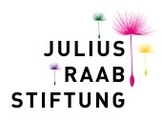Vienna (OTS) – There are always debates about wealth taxes, which are sold as a panacea. In fact, numbers, data, facts should underlie every such discussion. On behalf of the Julius Raab Foundation and the Raiffeisenlandesbank Niederösterreich-Wien, EcoAustria carried out a study on the subject of “Economic assessment and effects of asset-related taxes” in order to determine the actual consequences of such a tax for Austria. The analysis published in the anthology “Property Needs the Future” not only comes to the conclusion that wealth taxes make the desirable accumulation of wealth significantly more difficult. In addition, the tax hinders the establishment and continuation of companies and would thereby weaken the competitiveness of the location.
Medium-sized companies are particularly affected
Medium-sized companies would be significantly burdened by a wealth tax: the tax attacks the company’s substance and leads to financial Additional burdens and limits funds for investments, innovations and research, which damages Austria as a whole as a business location. If a wealth tax with a forecast volume of 5 billion euros was introduced, as has been hotly debated in the media for some time, investments would fall by 5 percent reduce and over 42,000 jobs cut. The value creation, i.e. GDP would fall by 2.3 percent in the long term, which corresponds to 10.3 billion euros.
Massive disadvantages for business transfers
According to the study, the successful transfer of family businesses, which are of particular relevance to Austria, would be massively jeopardized by an inheritance and gift tax. The Valuation of company investments or companies themselves, especially if shares are not listed on stock exchanges, also represents a particular challenge.
Home ownership is most important for the middle
Building wealth is particularly important for the middle of society. For the middle 40 percent of the population, their primary residence is a key asset, while the top 10 percent hold more diversified assets. According to the study, a high share of ownership leads to a significantly more equal distribution of wealth and helps to reduce the gap between rich and poor. However, this effect is hardly visible in Austria with its low home ownership rate compared to Europe.
Income from inheritance taxes is only manageable
Inheritance, estate and gift taxes account for an average of only 0.14 percent of GDP in OECD countries. The complexity of determining assets and the opportunities for people affected by the tax to circumvent the tax pose particular administrative challenges.
President Julius Raab Foundation Martha Schulz:
“Our study provides important insights that cannot be ignored in the political debate about wealth tax. The results strongly underline how critical a wealth tax would be for the Austrian economy, especially for medium-sized companies. Declining willingness to invest and job losses would be the effects of such a tax at a time when we should be focusing on growth and stability.”
“For the tourism industry, which is traditionally very real estate and asset intensive, an additional tax targeting property would be devastating. This would damage the substance and force companies to sell shares if regular tax payments cannot be met from cash flow.”
Board Director Roland Mechtler, Raiffeisenlandesbank NÖ-Wien:
“As a bank, we see ourselves as a strong and trustworthy partner for our customers. The common goal that unites us is to build value – for example through financing your own home or through financing your business activities. The path to owning your own home is already a very difficult one, even though property is the best retirement plan. Young families in particular should be guaranteed this opportunity. We have to learn to put facts first in public discussions, which is exactly what this study provides. Because we have to see wealth creation for what it is: as an opportunity to create security. This precautionary principle is more important than ever, especially in volatile times.”
EcoAustria Director Monika Köppl-Turyna:
“Contrary to empirical evidence, the desire for a wealth tax is usually accompanied by the hope of generating high revenues without negative consequences for the economy. However, this is wishful thinking without any scientific justification. A wealth tax reduces the supply of capital, increases the necessary capital gains and distorts savings decisions in favor of consumption. This inhibits company activity while “Economic losses, collection problems and high administrative costs reduce income.”
“Instead of relying on short-term revenue through new taxes, we should Rather, Austria should take a long-term look at its economic policy. What is needed are reforms that strengthen competitiveness and promote innovation.”
Questions & Contact:
Julius Raab Foundation
Elisabeth Sauritschnig, LL.M. (WU)
Manager
Tel.: +43 664 88 424 213
Mail: e.sauritschnig@juliusraabstiftung.at
